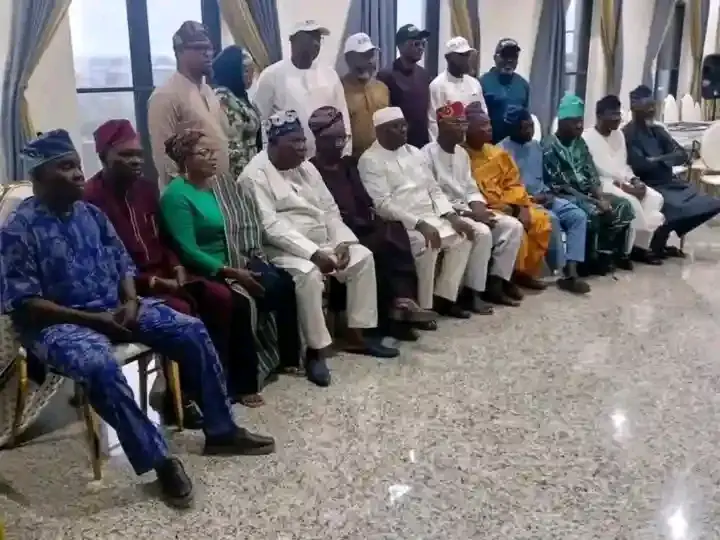In a bid to resolve internal disputes ahead of a critical parliamentary election, Nigeria’s Minister of Power, Adebayo Adelabu, mediated a reconciliation meeting on Friday between aggrieved aspirants and leaders of the ruling All Progressives Congress (APC) in Ibadan, Oyo State. The gathering followed tensions sparked by the party’s selection of Adewale Haastrup Olatunji as its candidate for the upcoming Ibadan North Federal Constituency bye-election, scheduled for August 16, 2025.
The vacancy arose after the death of the constituency’s former representative, Musliudeen Olaide Akinremi, an APC member who passed away in 2024. While the party endorsed Olatunji’s candidacy in line with internal procedures, a coalition of aspirants—organized under the United Ibadan North Federal Constituency Aspirants Forum—publicly rejected the decision, labeling it a breach of democratic norms. At a Monday press briefing in Ibadan, spokesperson Saheed Aderounmu argued that Olatunji’s nomination lacked legitimacy and warned that imposing him could jeopardize the APC’s electoral prospects. “This unilateral move undermines fair competition and the rule of law,” Aderounmu stated, flanked by fellow contenders.
Adelabu, a prominent APC figure and federal minister, intervened to broker unity ahead of the vote. The closed-door meeting, attended by party leaders and the disaffected aspirants, focused on calming dissent. According to Opeyemi Adesokan, a member of the APC’s campaign council, the discussions yielded a pivotal compromise: the aspirants committed to rally behind Olatunji despite earlier objections. “Through the minister’s efforts, all parties have aligned to secure victory for the APC,” Adesokan confirmed.
The resolution aims to prevent a fragmented party base in a constituency historically significant to the APC’s influence in southwestern Nigeria. With national attention on the bye-election, the outcome could signal the ruling party’s ability to manage internal conflicts—a recurring challenge in Nigeria’s competitively fragmented political landscape. Analysts note, however, that the truce may face strains in the months leading to the poll, particularly if grievances over candidate selection processes resurface.
The Ibadan North race underscores broader tensions within Nigerian politics, where primaries often spark accusations of favoritism, prompting interventions by senior figures to preserve party cohesion. As campaigns intensify, observers will monitor whether the APC’s unified front translates into voter confidence or fuels deeper skepticism about intra-party democracy.
